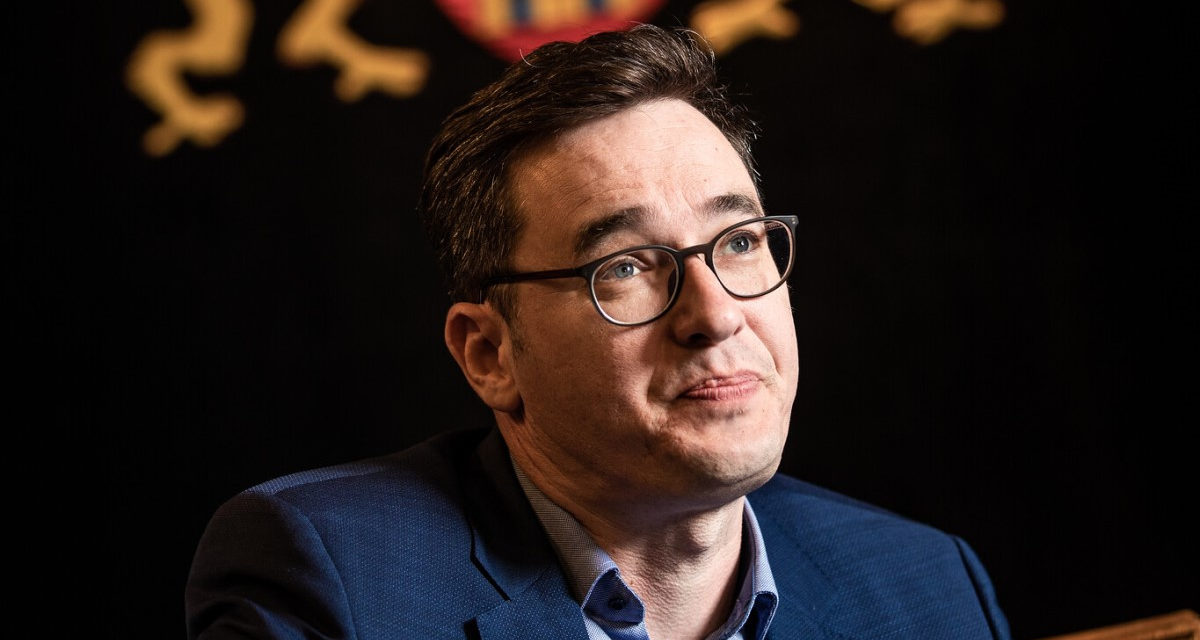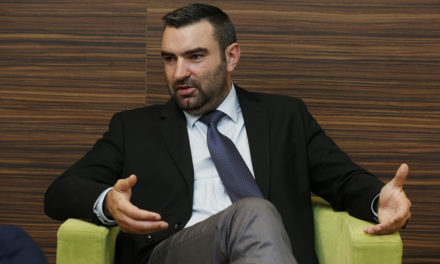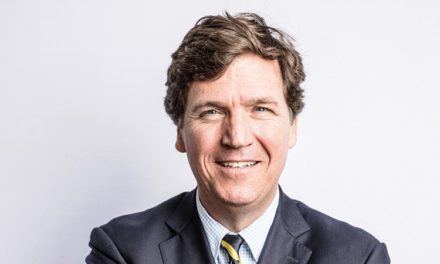We have a hellishly bad tradition in political life: the fact that almost every public figure always stays in his place even if he has otherwise proven a hundred times over that he is not suitable for his job, or has done or said something in public, after which according to the standards of democracy he should leave - writes the political scientist in Magyar Nemzet .
No, everyone stays with us, and the public will accept this after a short time. Both sides of this are disastrous: the fact that even after the biggest scandal, politicians, parties and governments never feel that they have a duty to leave their office or position, and also the fact that Hungarian public opinion is unable to force the departure of the given persons , instead resigning himself to the seemingly unchangeable.
All this reminded me of Gergely Karácsony: Karácsony is now bleeding from not a thousand, but a hundred thousand wounds as mayor, but don't worry! He will stay because once he has received the "trust" from the voters for five years, he can do anything - without consequences, of course (sorry to quote my own saying, but it's very relevant now). Because who else in Hungary has seen someone who was given a position not having completed the entire term of his mandate? How is anyone serious about this? Nothing, but there can be no mistake, error, corruption, crime, disgrace, which would cause an appointed or elected person to leave his office even a month early!
But where does all this come from?
Obviously from our history. Our long-lasting political courses clearly show the roots of this pattern, just think of dualism and the Tisza governments, the Bethlen era, but from this point of view, the Kádár era is the most spectacular, the closest in time, and this era has the most leaves its mark on our political life today. All the more, because the regime change in 1989-1990 did not in the least bring a caesura, a spectacular turn in our political life and culture, the props of the dictatorship remained with us, including the Kádár elite and nomenclature, who - as a network - inherited the Kádár "only don't change anything!" mentality.
The younger ones can no longer remember, but the older ones can recall the molinos that appeared again and again for decades on our public streets, on which the Kádár-Lázár-Losonczi trio (party secretary general, prime minister, president of the Presidential Council) could be seen in an endlessly boring manner, saying that the fried meat eater, To Kőbánya beer drinkers and very satisfied consumers, and at the same time to the citizens of Nyars, that Hungary is the island of peace, nothing will change here, the wise leaders will stay with us and take care of us forever.
The hope was there in all of us that the regime change would drive out not only the dictatorship, but also the petrified people, and that the country would transition to a new, democratic norm and pattern of public life, in which not only governments and parties could be replaced at least every four years, but also the various positions also acting persons, if in the meantime it turns out that they have become unfit for their duties. However, we had to be disappointed in this hope.
The fact that we should be disappointed was first decided when the leaders of the former state party, the nomenclature, actually remained in place, there were no changes of personnel, no lustration, and even the post-communist network took over political power again in 1994 after being pushed into the background for a short time. The fact that the secret service files were never made public is also symbolic, and Gyula Horn's gut-wrenching response to the question that, after it was revealed that he was involved in the issue as a former political leader, is also symbolic: "So what?"
Moving on, it is not certain that we should be proud of our "tradition" that in the past decades there has not been a single pre-arranged election. We are absolutely unique within this region, practically everywhere from the Baltics to Bulgaria there have been early elections and several times, but the four-year cycles have never been disturbed by anything here. There were sometimes changes within the governments (the death of József Antall, the coup of Péter Medgyessy, the resignation of Gyurcsány), but it did not happen that a government failed during its term.
But should we be proud of this? I think that only in the event that each government fulfilled its mandate justifiably and legitimately, each prime minister met the basic standards of democracy, and there was no reason in any case for a government or prime minister to leave prematurely.
Well, this is what is not the case: Ferenc Gyurcsány could not have remained in office after the Ószöd speech and the police brutalities in the fall of 2006, and since Hungary has a German-style chancellorial government, this would have also meant the fall of the government and early elections . However, none of this happened, so the cemented cycle logic continued, but in this case it was not a virtue, but a shame. And now we're at the Christmas Syndrome.
Karácsony has practically had nothing to do in the past two years that he hasn't messed up or crippled. Starting with the fact that he did not keep the majority of his promises during the campaign (not some, but the majority!), he made many bad decisions during the pandemic and caused a huge chaos in the traffic of the capital, on the one hand, by recklessly, raid-like painting of the bicycle lanes in the inner districts, and by starting renovations in several important focal points of the city at the same time, paralyzing traffic. He started the Chain Bridge project late and expensively, the BKV investments and other investments are surrounded by corruption, and in the meantime Budapest is getting more and more slums, eerily recalling the badly remembered Demszky era with potholes, crumbling plastered house walls, dirt and filth .
And the mayor put the full stop to the scandal surrounding the sale of the City Hall.
The above already clearly showed that this task is too big for Karácsony, but he stepped up in connection with the sale of the City Hall: this time it was revealed in black and white that he lied and did not acknowledge the obvious fact that the city administration was thinking of the On the transfer of the town hall to private hands. According to our current knowledge, it is no longer a question of whether he knew that the capital's asset management company was negotiating the sale with the invited partners, because he should have known about it. Otherwise, if he had not known about all this, then he would have become unfit for his task, and thus he committed the biggest crime: he lied both to the citizens of the capital who voted against him and to those who elected him.
In a word, he followed Gyurcsány, his teacher: he lies in the morning, at noon and in the evening, he lies on all wavelengths, he lies in the ATV, he lies at press conferences, he lies on his social media, he lies voluntarily and by singing.
Gyurcsány was supposed to leave in the fall of 2006 - but he didn't. Karácsony must leave in the fall of 2021 for similar reasons. By the way, it is possible that the left has already realized this, the Gyurcsánys have also realized this, and they want to remove him from the chessboard in time, before they lose a chance in the next mayoral election. This is what needs to be considered: is there a way that not the Gyurcsánys, but the capital force the departure of Karácsony by democratic means?
Finally, let's not take it for granted that every political leader can always remain in office until the last moment, regardless of their achievements, mistakes and crimes. This is a very undemocratic tradition!
The author is a political scientist and a research consultant at the Center for Fundamental Rights
Source: Hungarian Nation
Cover photo: Gergely Karácsony (Photo: MTI/Árpád Földházi)












